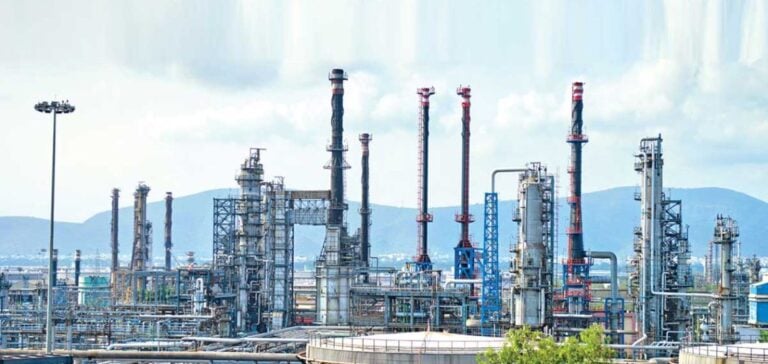The integrated HPCL Rajasthan Refinery Ltd. (HRRL), located in Balotra district, Rajasthan, represents a significant milestone for India’s energy industry. As the first integrated refinery built in nearly a decade, it is expected to start operations by the first quarter of 2025, with its main units already in the pre-commissioning phase.
Strategic Diversification of Crude Supply
Designed to operate with a mix of 83% imported crude and 17% domestic crude, the refinery aims to diversify its sources for better supply security. Russian Urals crude, along with medium grades from Arabia and Basrah, are among the preferred options. Thanks to its complex configuration, including vacuum distillation and catalytic cracking units, the facility can process heavier crudes, enhancing its flexibility.
Economic and Environmental Objectives
The refinery will primarily produce Euro 6-compliant diesel and gasoline, along with high-value petrochemical products like polypropylene and polyethylene. These products are expected to significantly reduce India’s petrochemical imports, a key goal highlighted by Petroleum Minister Hardeep Singh Puri. Additionally, HRRL’s petrochemical integration is projected to achieve gross refining margins of around $20 per barrel, significantly higher than the national average.
A Strategic Location to Meet Demand
Situated near consumer markets in northern, western, and central India, the refinery is well-positioned to meet the growing demand for refined and petrochemical products. Its pipeline connectivity to the import terminal at Mundra and the Mangla oil fields ensures a steady crude supply. Furthermore, this strategic location helps HPCL reduce its reliance on other refineries to fulfill domestic demand.
A Context of Challenges and Opportunities
The project, though promising, has faced delays due to pandemic-related restrictions and rising commodity prices. However, analysts emphasize that the high petrochemical integration and crude flexibility provide significant economic potential.
HPCL, which already manages refineries in Mumbai and Visakhapatnam, views this project as an opportunity to address its net deficit in petroleum product production. With this new infrastructure, the company is better equipped to meet the needs of northern India, a region with a net deficit of refined products.






















